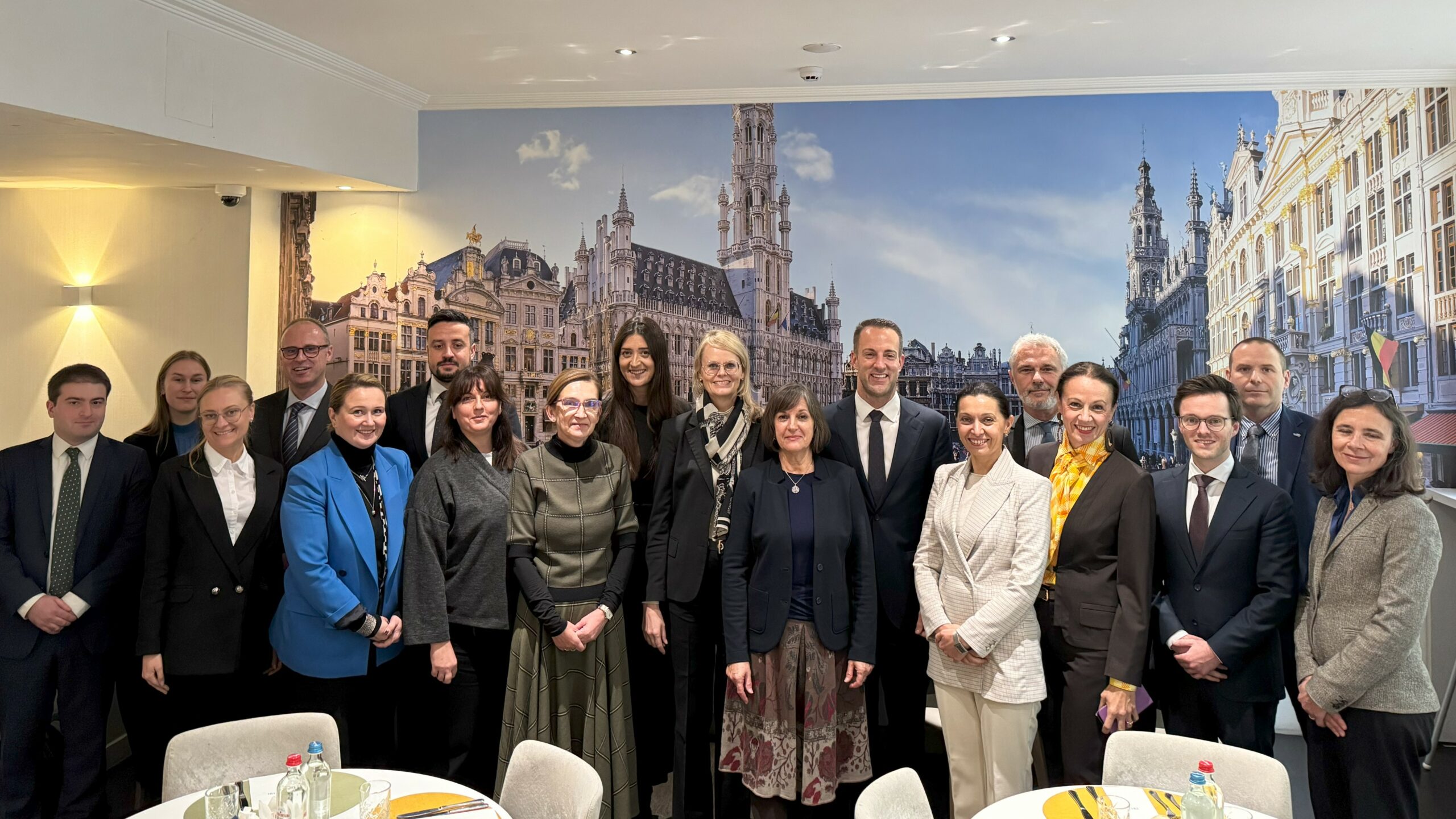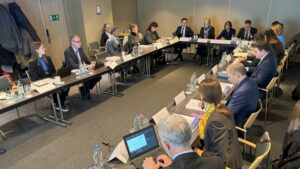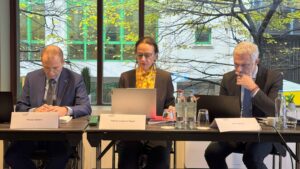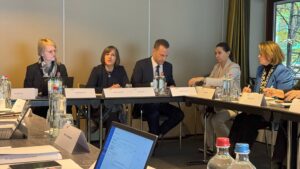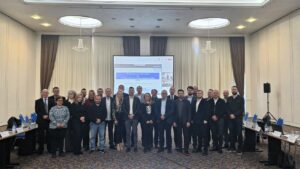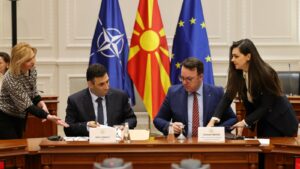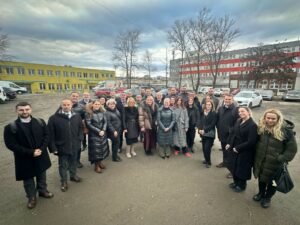BRUSSELS – The 25th Meeting of the Regional Steering Committee of the Transport Community convened on 14 November 2024 in Brussels, to discuss advancing transport integration and policy coordination for between the European Union, the Western Balkan regional partners, and observing participants – Georgia, Moldova, and Ukraine.
The meeting’s primary focus was on the endorsement of the Transport Community’s Next Generation Action Plans for the period 2025-2027. Aligned with the goals set in the Growth Plan for the Western Balkans, these comprehensive strategies were co-designed between the Transport Community and relevant authorities from across multiple sectors, including road, road safety, rail, transport facilitation, and waterborne transport and multimodality. The plans set the agenda for the next phase of reforms and investment priorities in the region, reinforcing the commitment to aligning with the EU’s transport standards and getting the regional partners and observing participants’ transport markets closer to the EU.
Addressing the meeting’s participants for the first time since Serbia took over the rotating presidency over the Committee, Ms Jasmina Radonjić, Committee Chairperson and Head of Section at the Ministry of Construction, Transport and Infrastructure of Serbia, pointed out that she looks forward to continuing productive work together with the Western Balkans partners, ensuring sustainability of already achieved outcomes. She encouraged participants to speak up and share their insights in order to maximise the benefits of assistance of the EU and Transport Community. “The focus should be on meeting the deadlines for acquis transposition, especially within the Reform Agenda of the New Growth Plan for the Western Balkans,” she underlined.
Committee Co-Chair and Director for Policy Coordination in the Directorate-General for Mobility and Transport of the European Commission, Ms Mona Bjorklund, reflected on the Commission’s recently adopted 2024 enlargement package, which emphasised that enlargement has entered a new phase with fresh momentum. The Action Plans for the upcoming three years endorsed today will serve as pivotal documents to ensure that this renewed momentum translates into tangible progress on transport acquis alignment in the region, while notably building on sustained support from the Transport Community.
Mr Matej Zakonjšek, Director of the Permanent Secretariat of the Transport Community pointed that the next five years will be crucial in shaping the future trajectory of the Transport Community. “This period represents a critical phase in our mission to foster greater connectivity, enhance economic resilience, and align with EU standards across all transport sectors. To fully capitalise on the new thinking that informs the Next Generation of Action Plans, we must advance the transposition of the EU acquis across all modes of transport, including road safety, railways, road, inland waterways, and maritime transport,” he underlined.
The Committee also endorsed the annual 2024 Progress Report on the Implementation of the TCT Action Plans and EU Acquis for the Western Balkans, highlighting achievements and identifying areas for further development. Updates on the status of the report for the observing participants were also discussed. These reports will be endorsed on a political level by the ministers from the region during the upcoming Ministerial Council of the Transport Community, scheduled to take place in Belgrade on 17 December 2024.
Discussions also included an update on cooperation with the parliaments of the Western Balkans, aiming to strengthen legislative support for transport reforms, as well as a review of the conclusions from the 5th Social Forum of the Transport Community held in Sarajevo earlier this year.
Looking ahead, the Committee reviewed remaining preparations for the upcoming Ministerial Council Meeting of the Transport Community.
The Regional Steering Committee discussed a variety of administrative and financial topics, such as the draft Budget for 2025, the 2025 Annual Work Program, and the Staff Regulations revision.
The meeting concluded with an update on the progress of the 11 Border Crossing Points/Customs Crossing Points fiches, developed in cooperation with CEFTA and the Transport Community, highlighting efforts to streamline border procedures and enhance connectivity across the region.
About the Regional Steering Committee
The Regional Steering Committee (RSC) ensures proper implementation of the Transport Community Treaty, takes decisions in the cases provided for in the Treaty and prepares the work of the Ministerial Council. A South East European Party, currently Serbia, presides in turn over the RSC in accordance with the arrangements laid down in the rules of procedure. The chairperson convenes the meetings at least twice a year to review the general functioning of the Treaty and, whenever circumstances so require, at the request of a Contracting Party.

